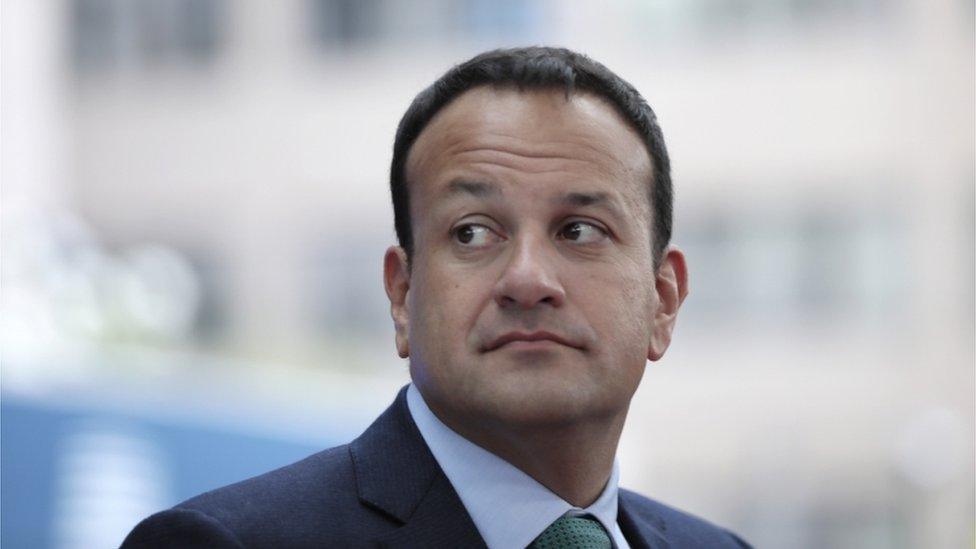Coronavirus: Ireland's shops reopen as restrictions eased
- Published
Coronavirus: Shops, hairdressers, and museums reopen in Republic of Ireland
All retail outlets, hairdressers, museums and libraries have reopened in the Republic of Ireland on Tuesday in an easing of Covid-19 restrictions.
Ireland had been in lockdown for nearly six weeks, with rules similar to those in spring, except schools stayed open and construction continued.
It is now moving from the most severe level five restrictions to level three.
People will now also be able to attend religious services and play golf and tennis again.
Gatherings of 15 people can take place outdoors and gyms and swimming pools can reopen, as can hotels and guesthouses, with services limited to residents only.
However, people will not be allowed to leave their county except for essential reasons such as work, education or a medical appointment.
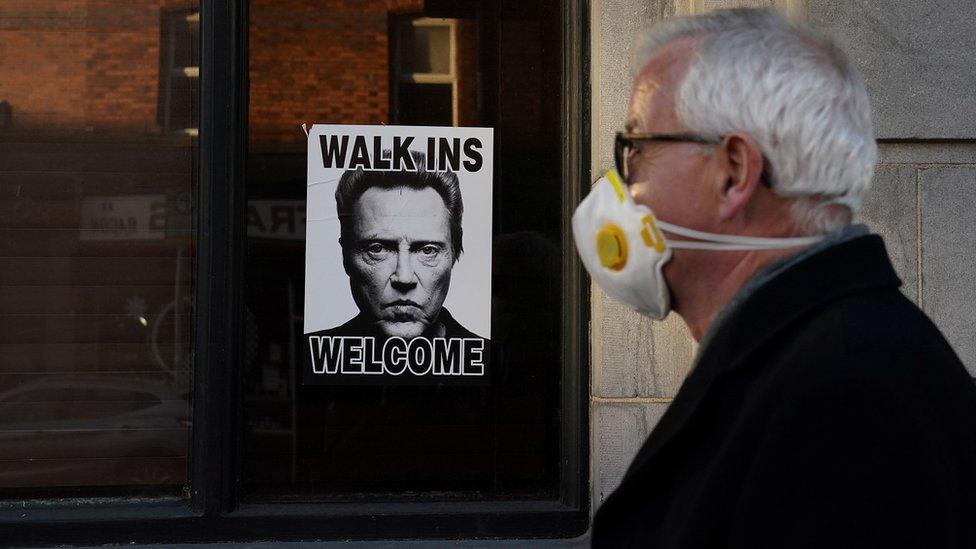
A number of other sectors will also reopen as the country moves out of lockdown
Households have been told not to mix with other households outside their bubble until Christmas week.
People are still advised to work from home where possible, and a face covering should be worn outdoors on busy streets, inside crowded workplaces and in places of worship.
From Friday, restaurants and pubs that have a kitchen and serve food will reopen.
However, pubs that do not serve food will remain closed except for delivery or take-away services.
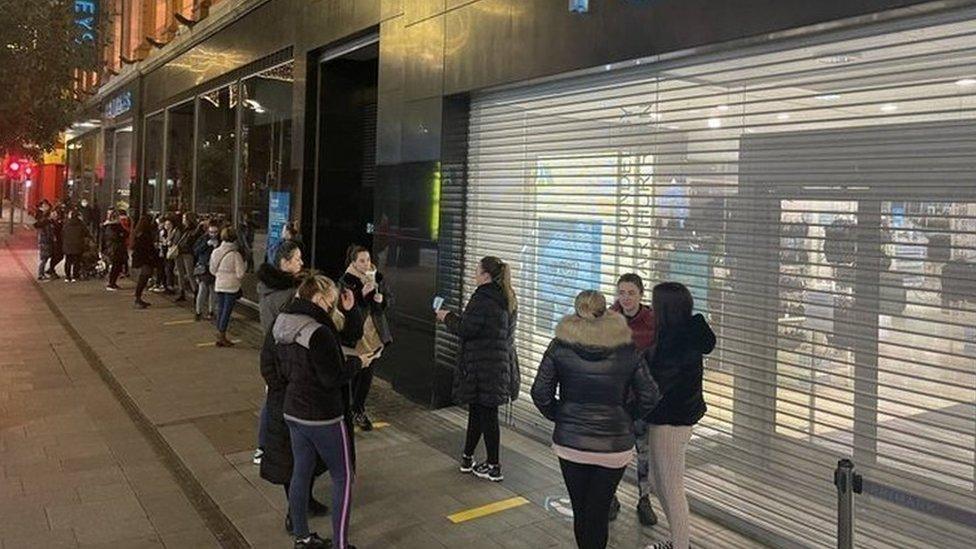
Shoppers queue outside Penneys in Dublin before it opened on Tuesday morning
From 18 December until 6 January, people will be allowed to travel outside of their county and up to three households will be allowed to meet indoors.
Non-essential shops in Northern Ireland are currently closed until 11 December.
Some shoppers queued outside Penney's in Dublin from 04:30 local time on Tuesday ahead of it reopening.
Leonard Watson, who is the owner of a menswear clothing business in Letterkenny, County Donegal, has said it has been a long six weeks but he is delighted to be reopening again.
"It is great to get the doors open again in the run up to Christmas," Mr Watson said.
'Continue to shop local'
Speaking to BBC Radio Foyle, the business owner said, if given the option, he would much rather have been closed for the past five weeks if it meant he could be open for the next two weeks in December.
"It is the golden quarter, December is the month for us as independent retailers to make most of our money that covers us through the quiet months of January and February.
"We are still here, people need the high streets and we just hope people will continue to shop local."
Mr Watson said he accepted that shops being open was conditional on coronavirus case numbers remaining low, but said he was hopeful local retailers would be able to get at least some Christmas trade.
Paddy Malone, from Dundalk Chamber of Commerce, said more than 300 shops in the Dundalk area had availed of financial assistance from the Irish government to help them go online during the lockdown.
"The local office did more in the past four months than they did over the past five years of getting businesses to switch online," he said.
Last month, it was reported that Tánaiste (Deputy Prime Minister) Leo Varadkar had advised against cross-border travel to Northern Ireland at Christmas, but he later said that was not the case.
Speaking on BBC Radio Ulster on Monday, Irish Foreign Minister Simon Coveney said no-one in the Irish government was suggesting that people could not cross the border.
"What needs to happen north and south is for people to respect the restrictions that are in place," Mr Coveney said.
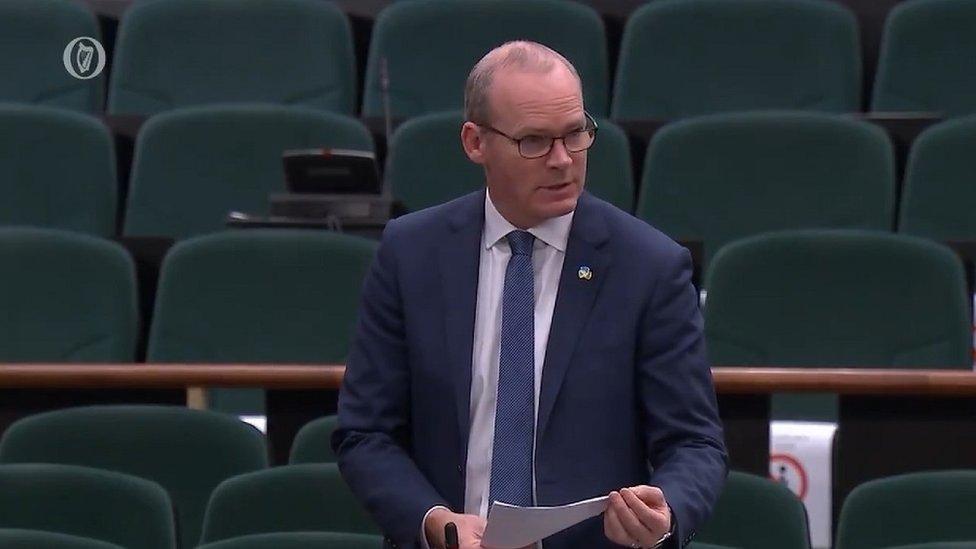
Simon Coveney told the BBC 'we're trying to contain a killer disease here and so people need to be responsible in how they travel'
"We are seeing strong advice coming from the executive in the north and the government in the south that there should be no non-essential travel.
"So in other words if people need to see a relative, if people need to travel for work or for study or medical reasons or other essential reasons, of course they are allowed to travel.
"But we're trying to contain a killer disease here and so people need to be responsible in how they travel, how they move around so we can limit the spread of this disease."
- Published25 November 2020
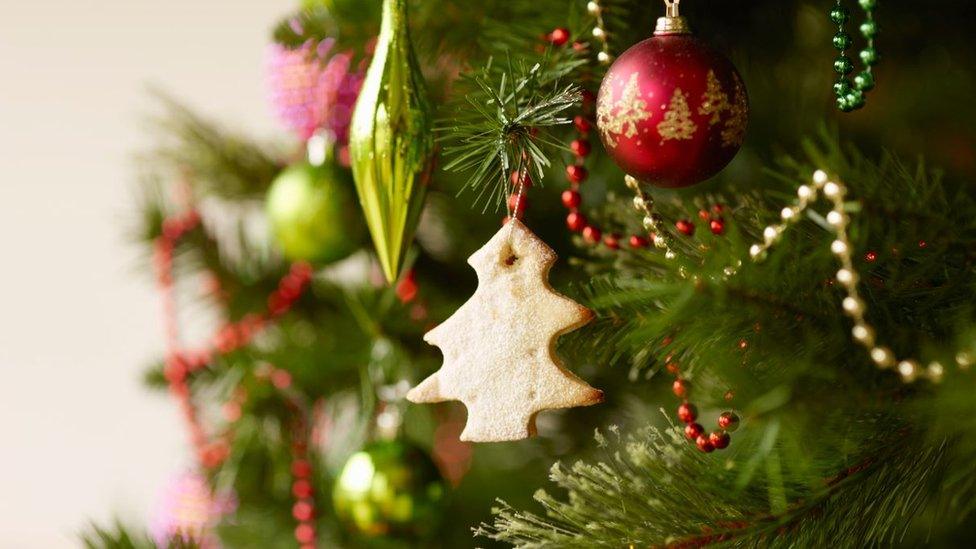
- Published25 November 2020
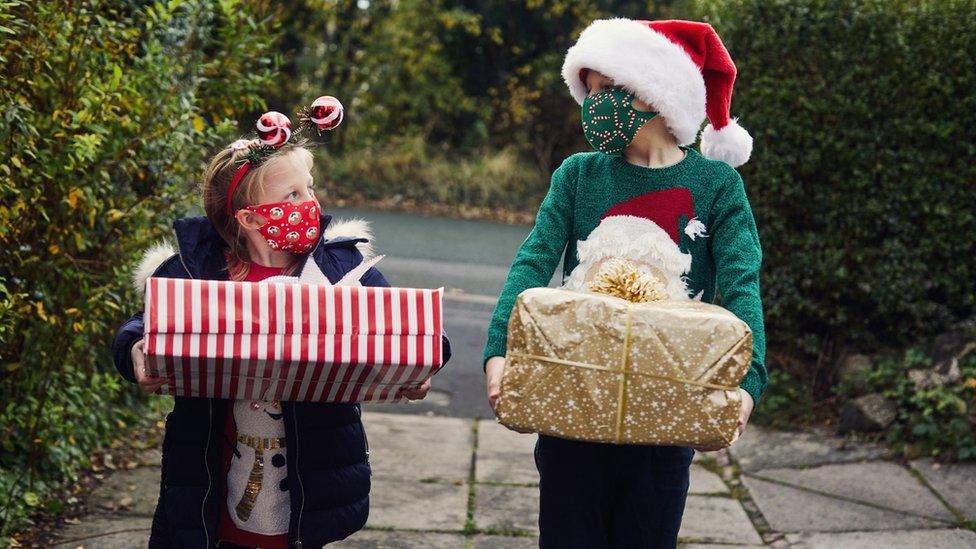
- Published12 November 2020
